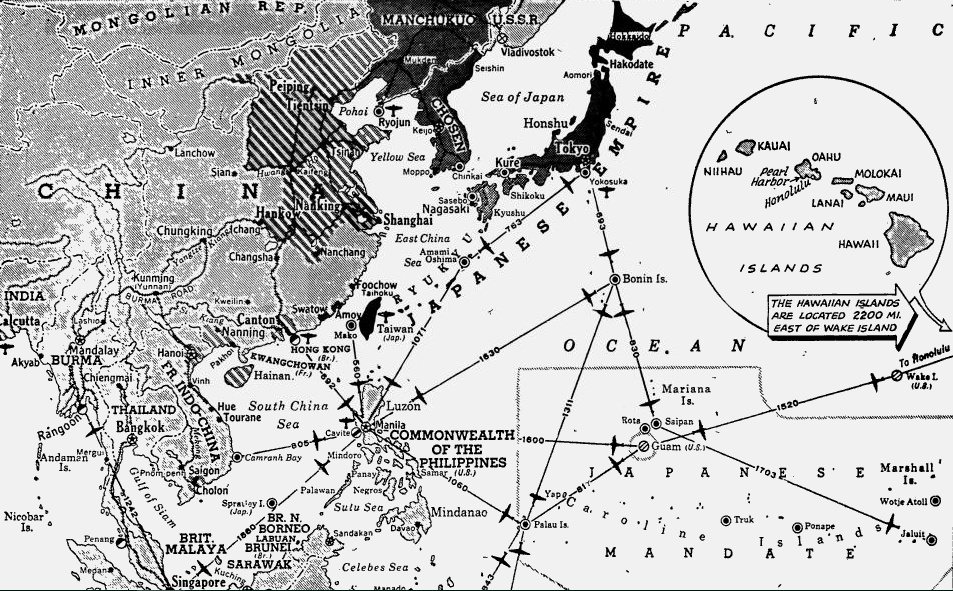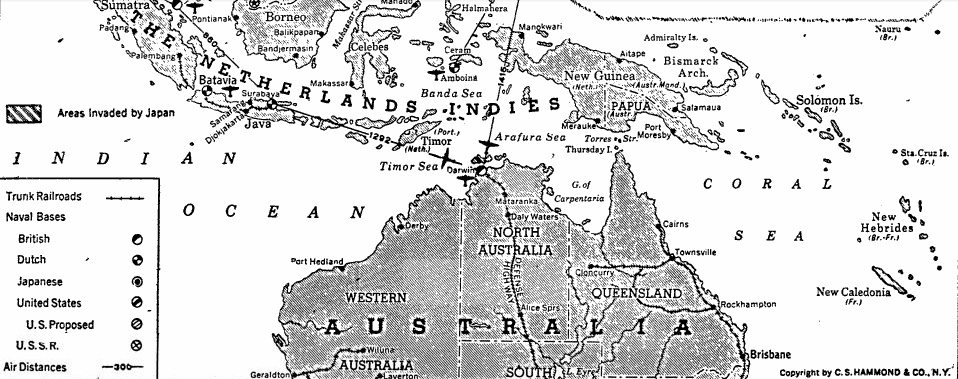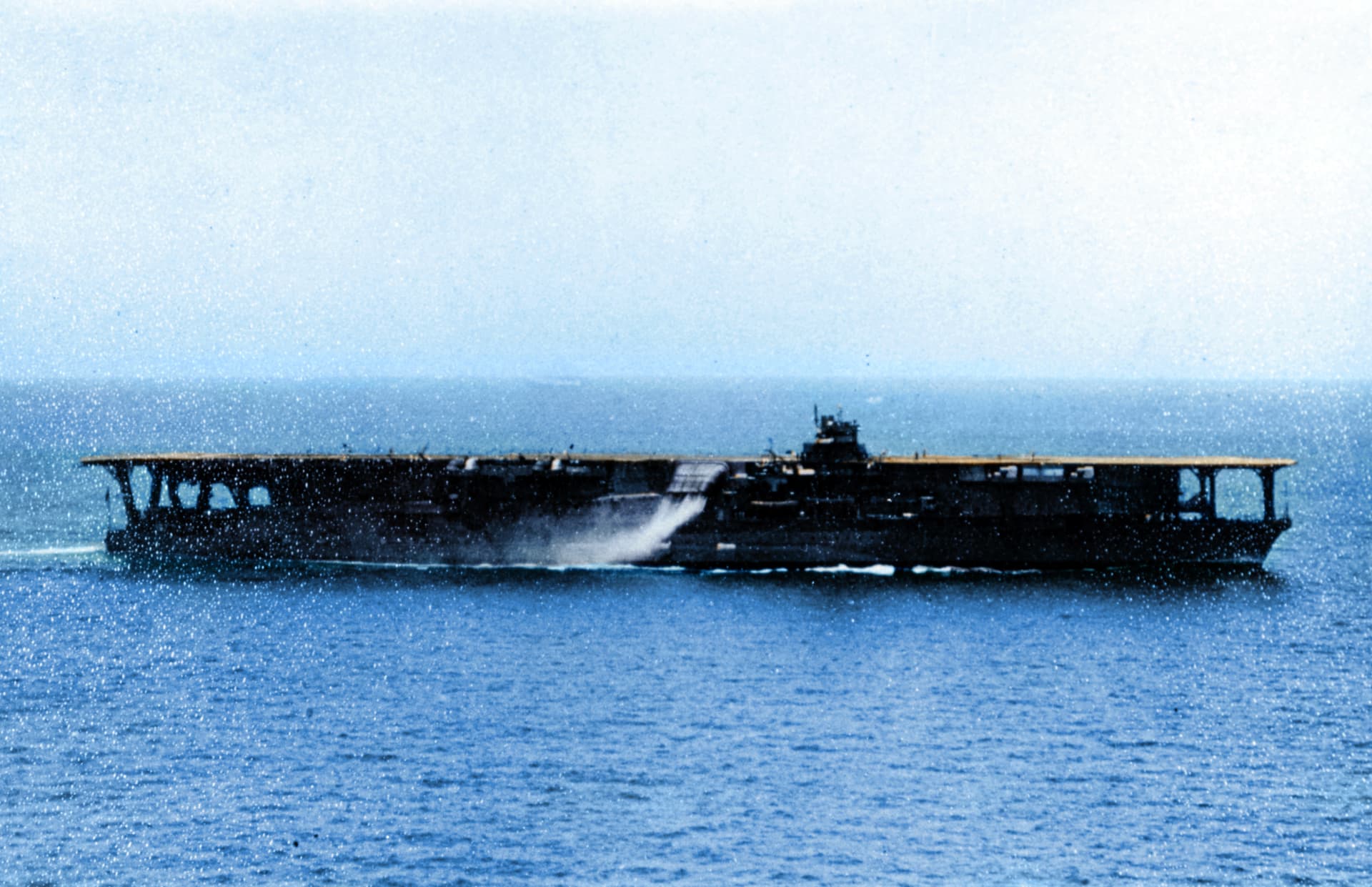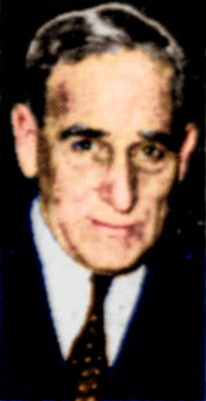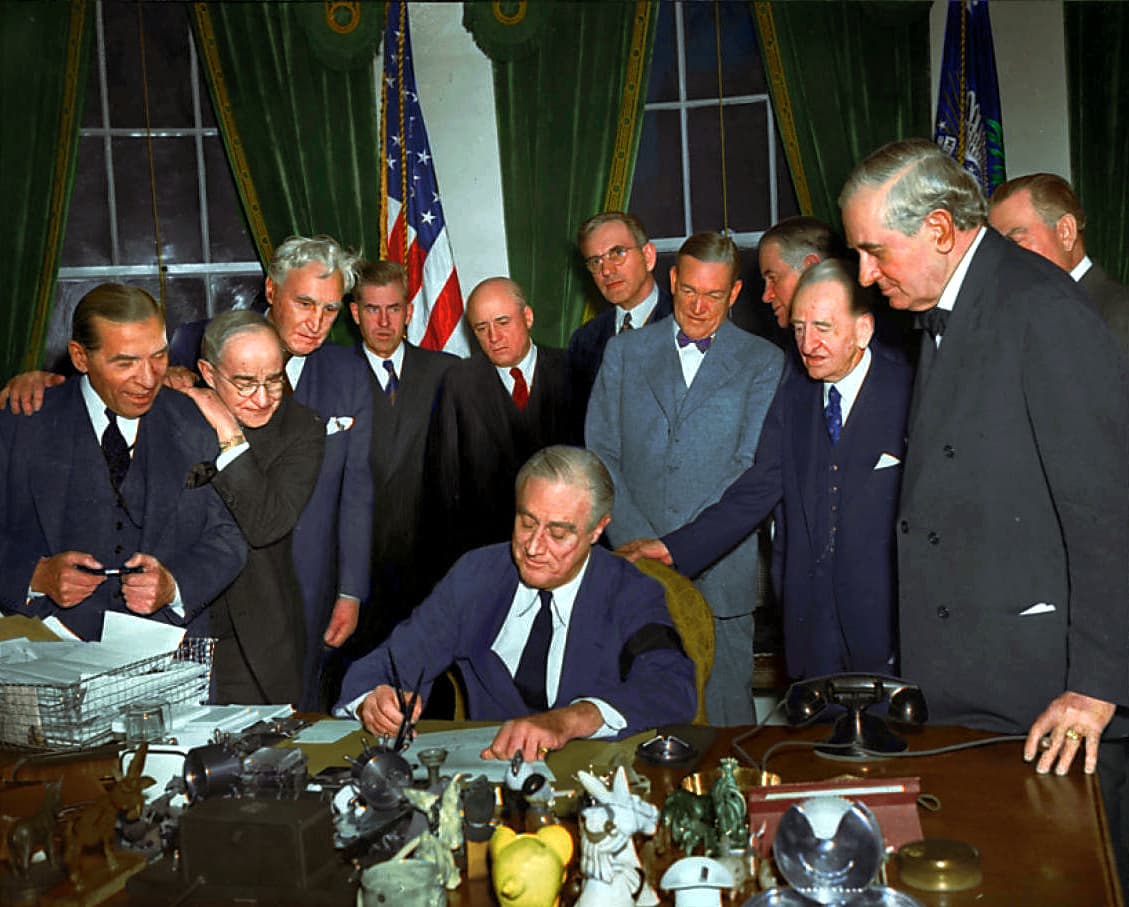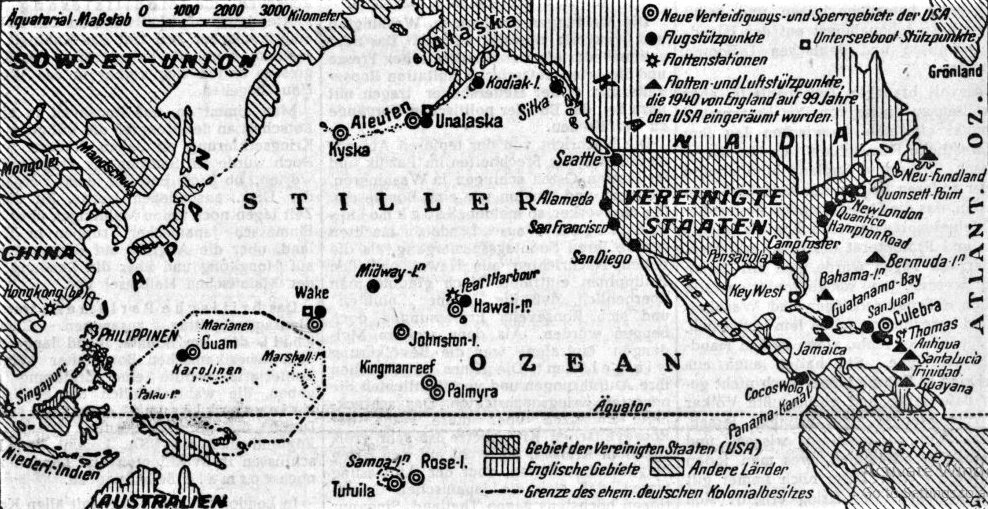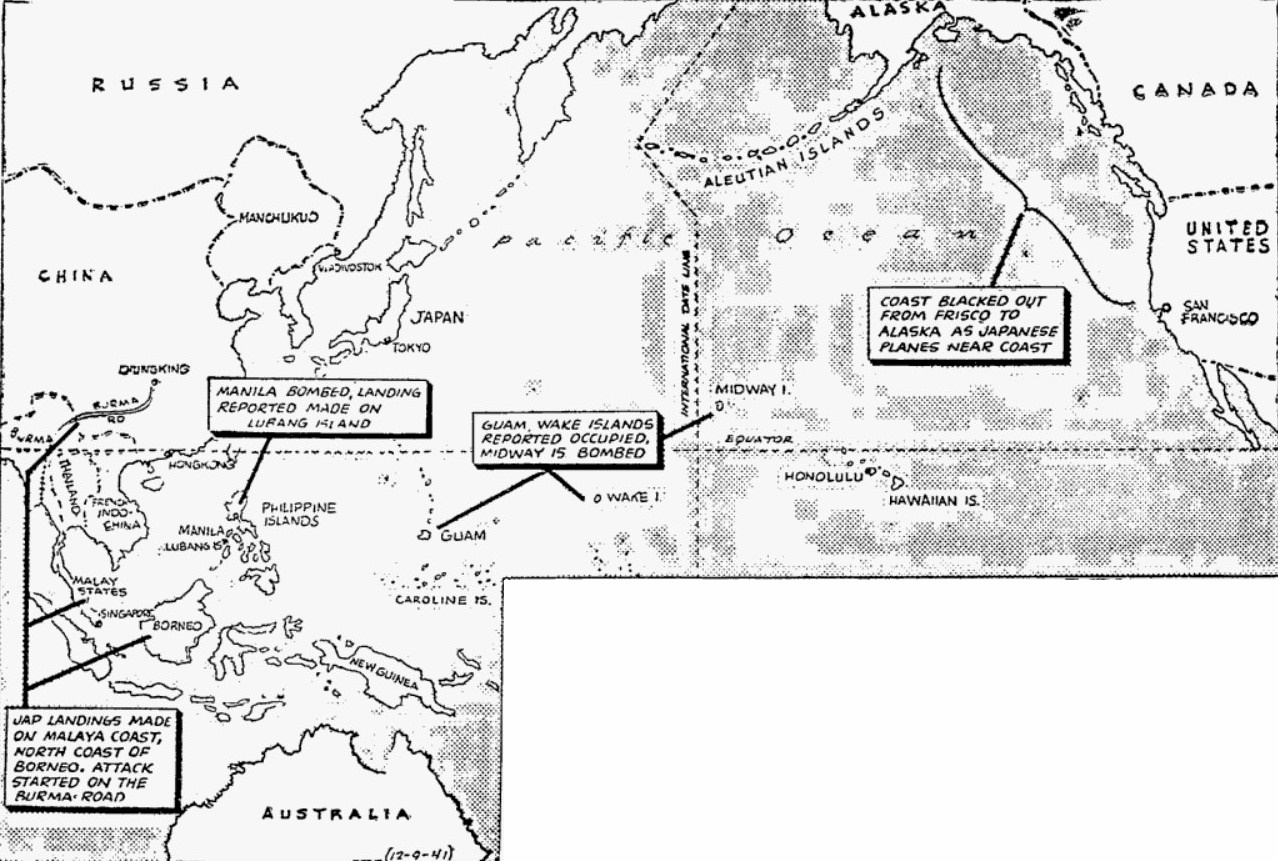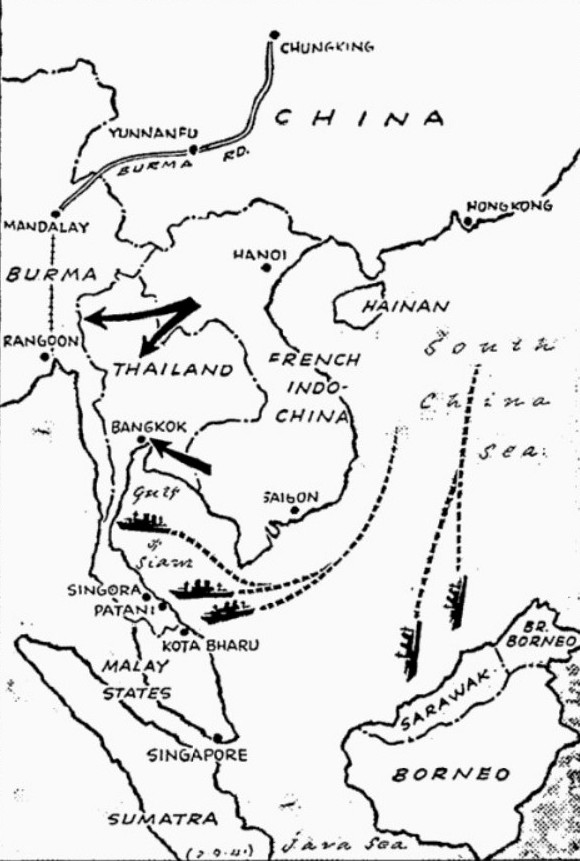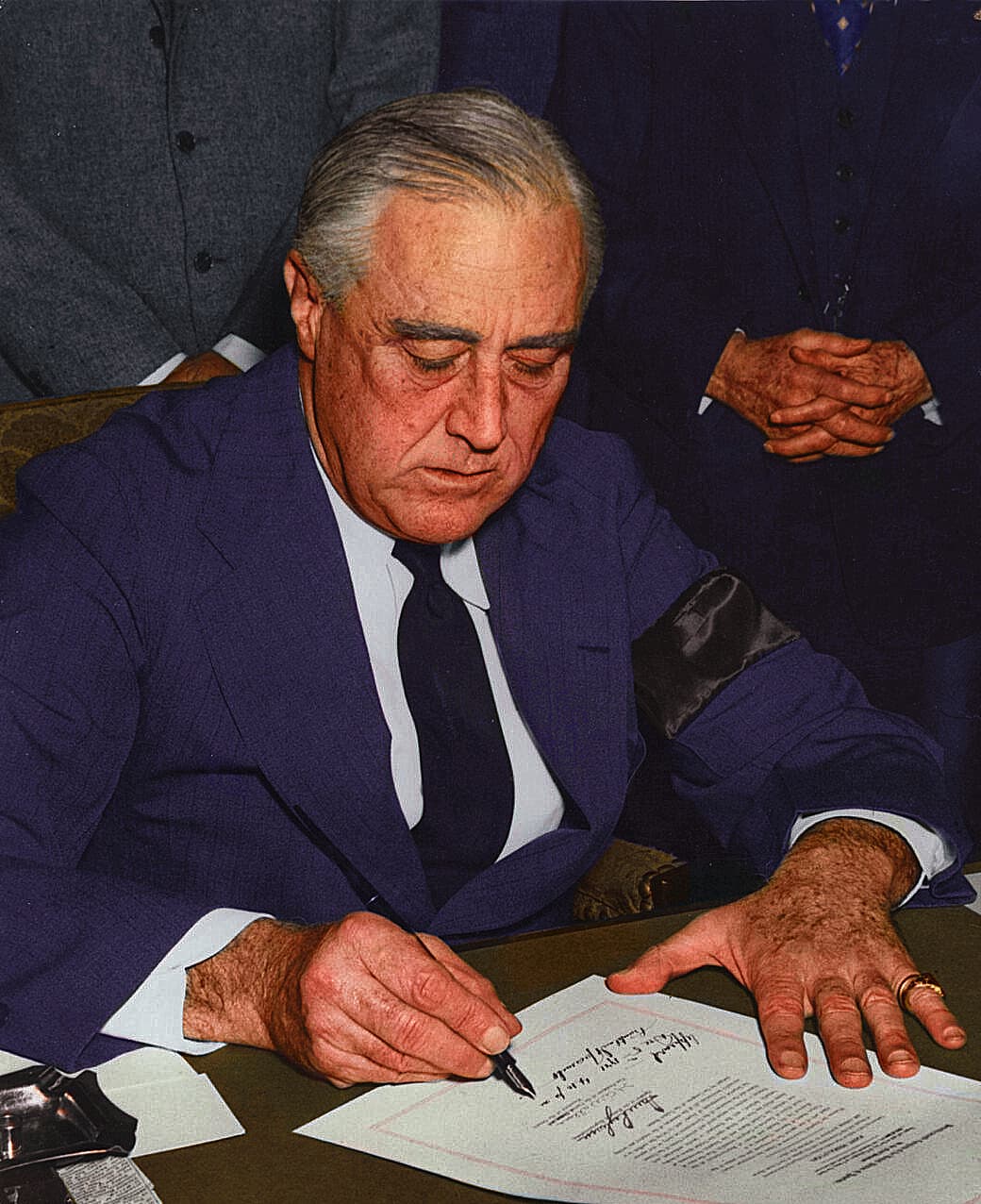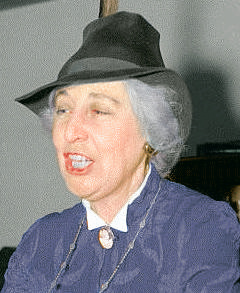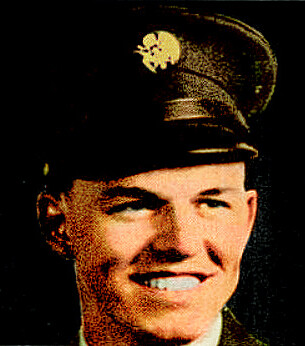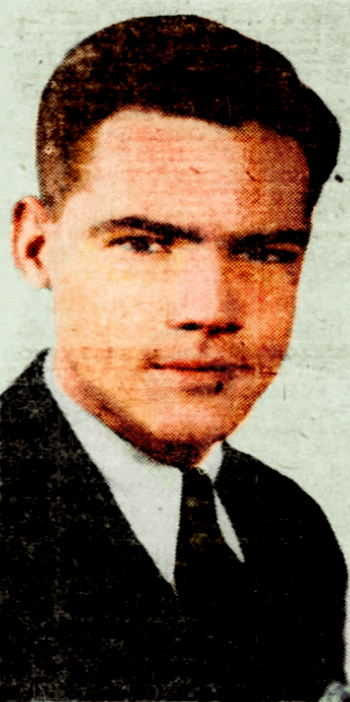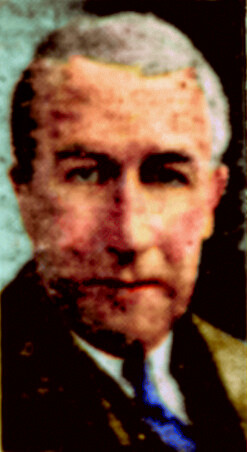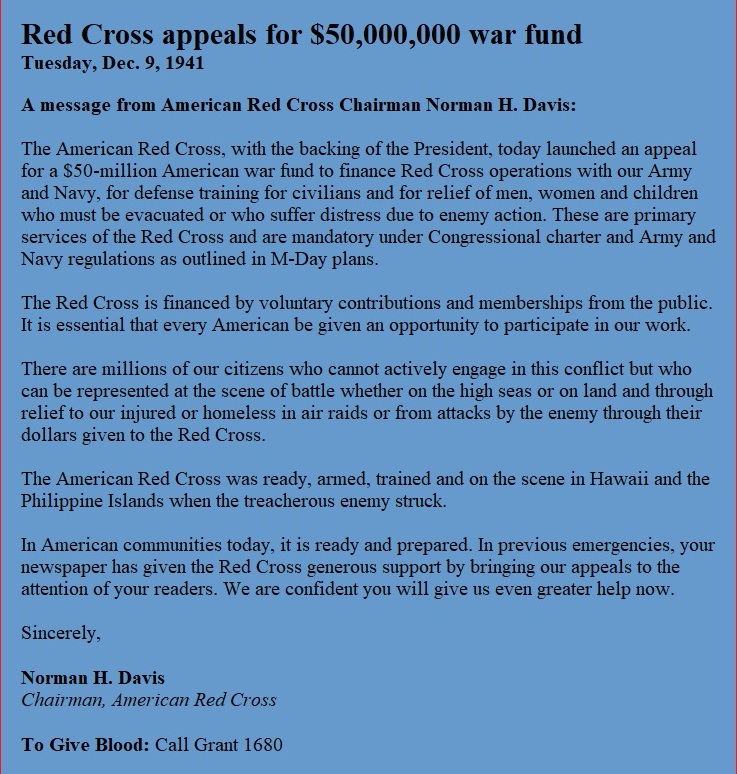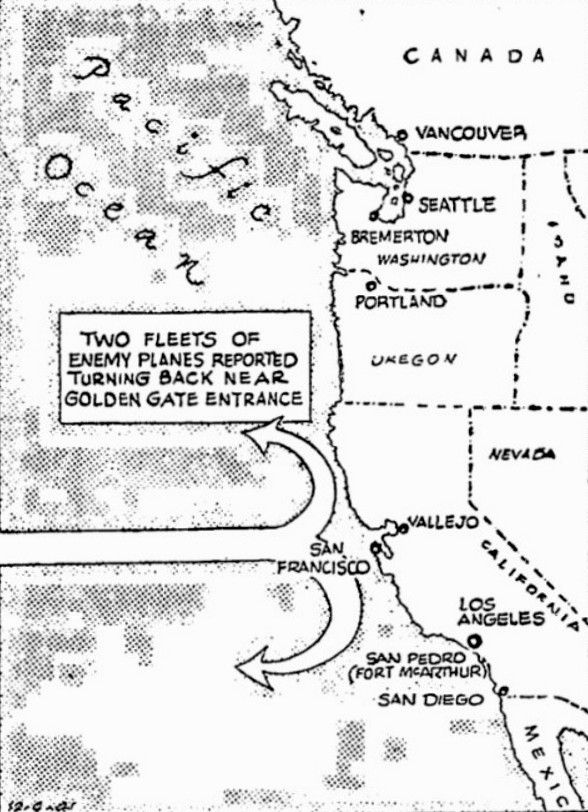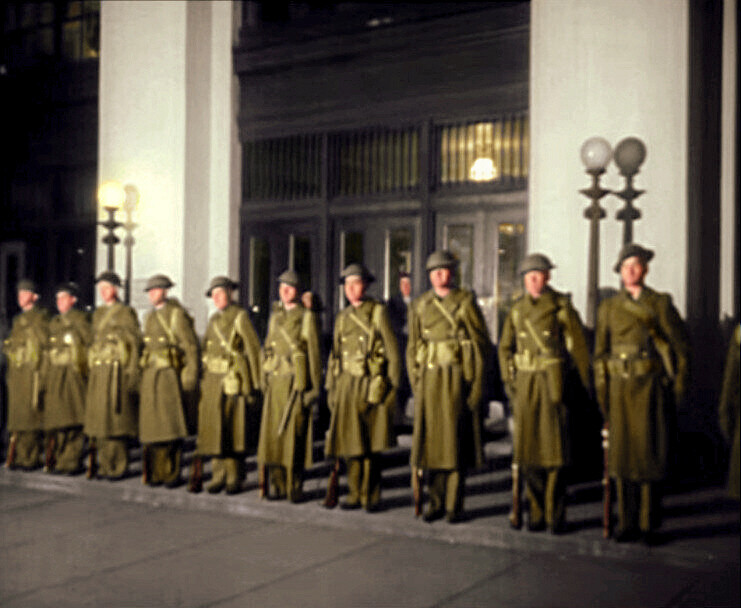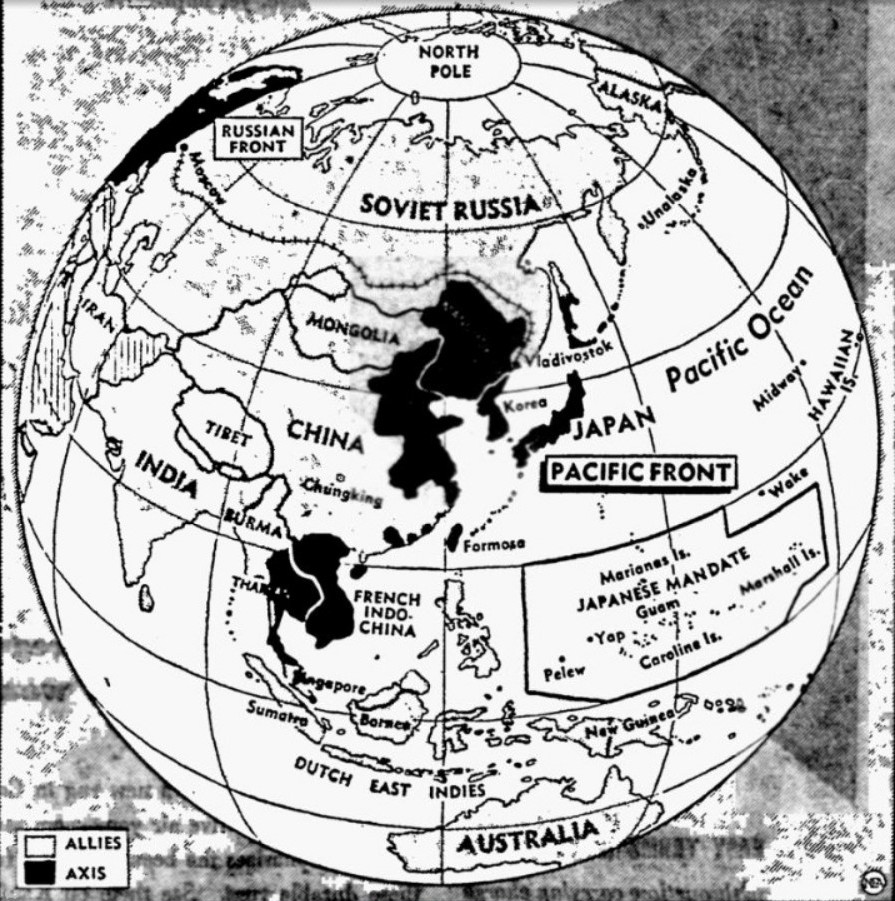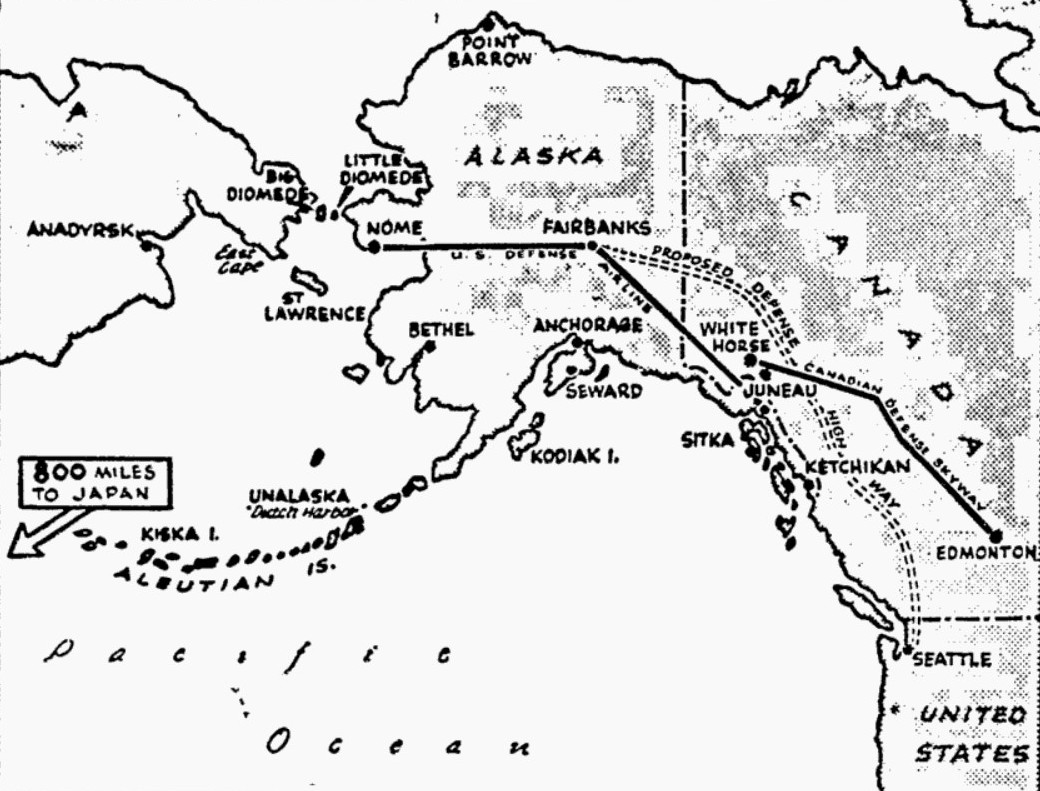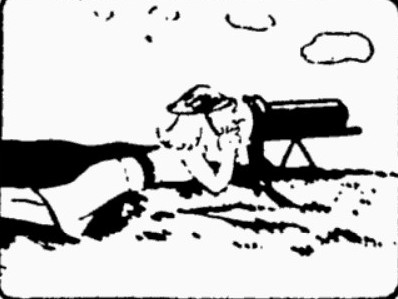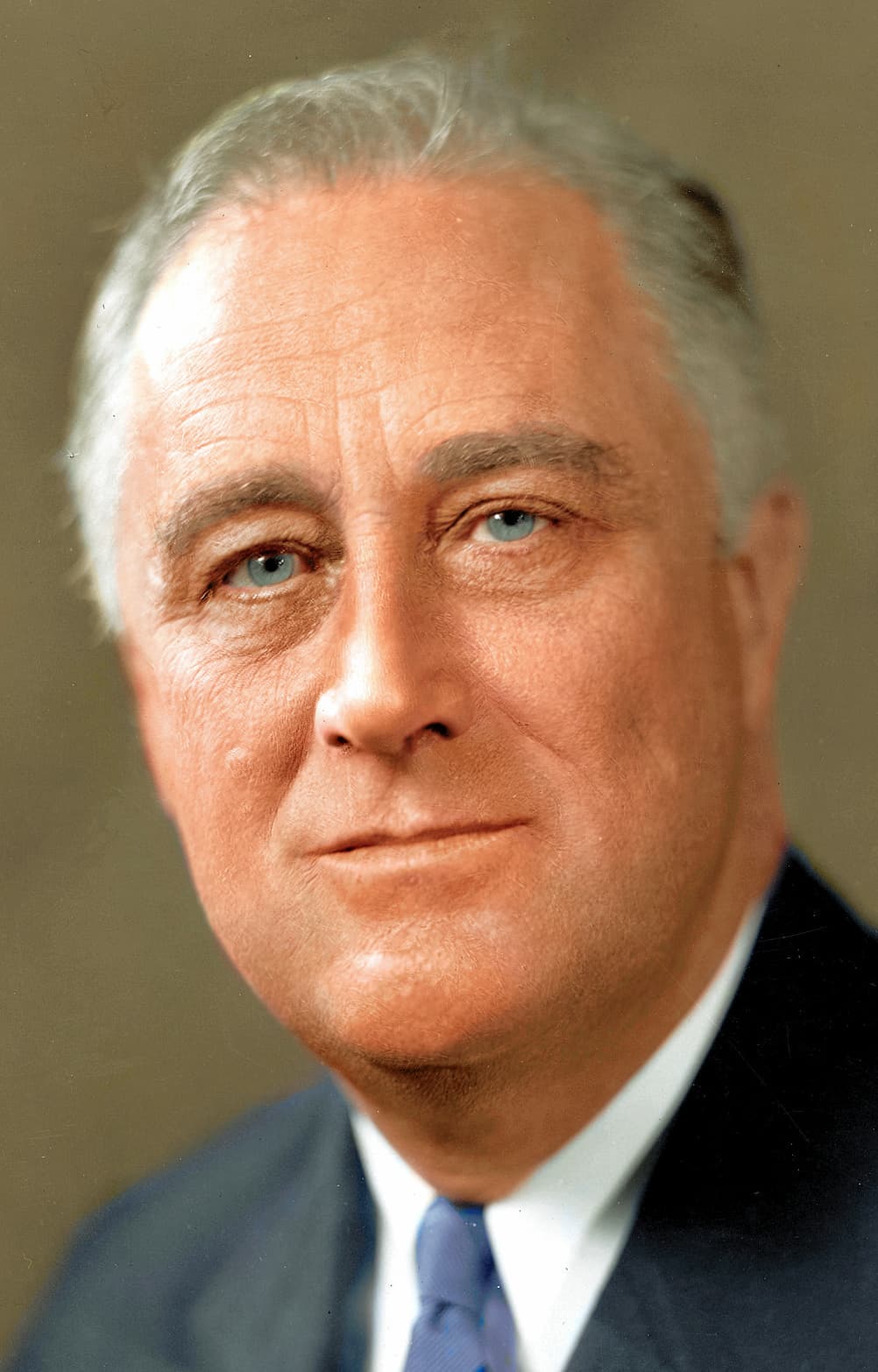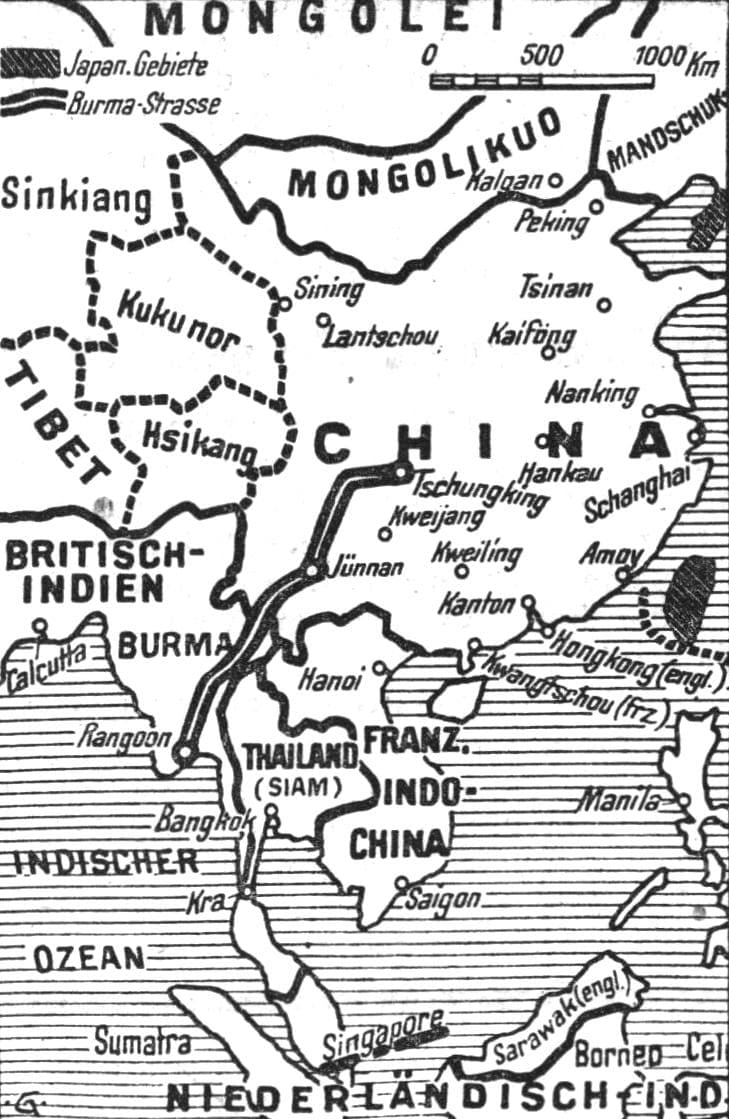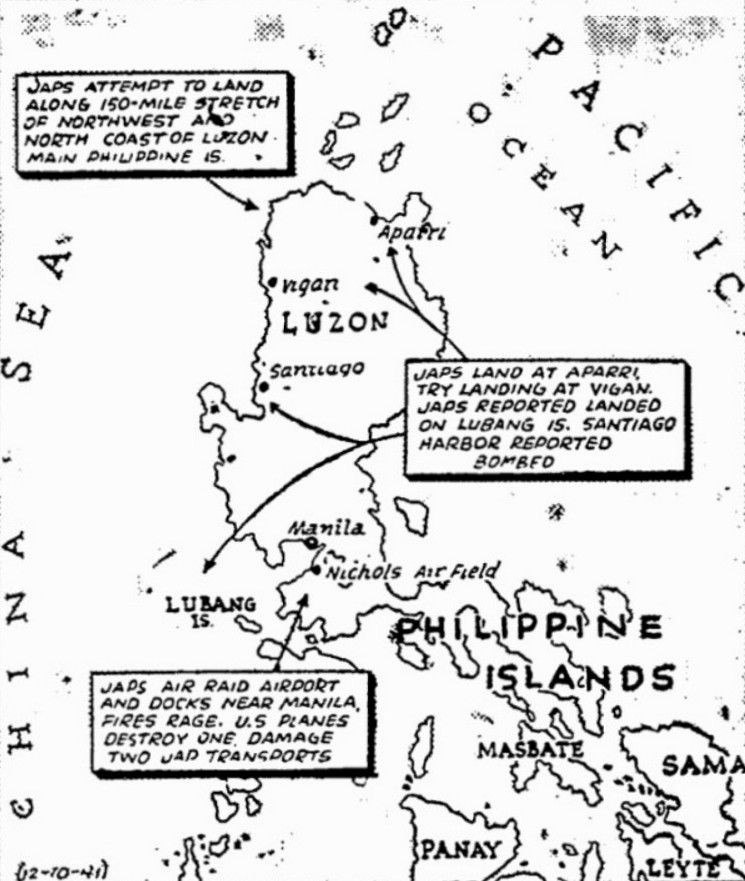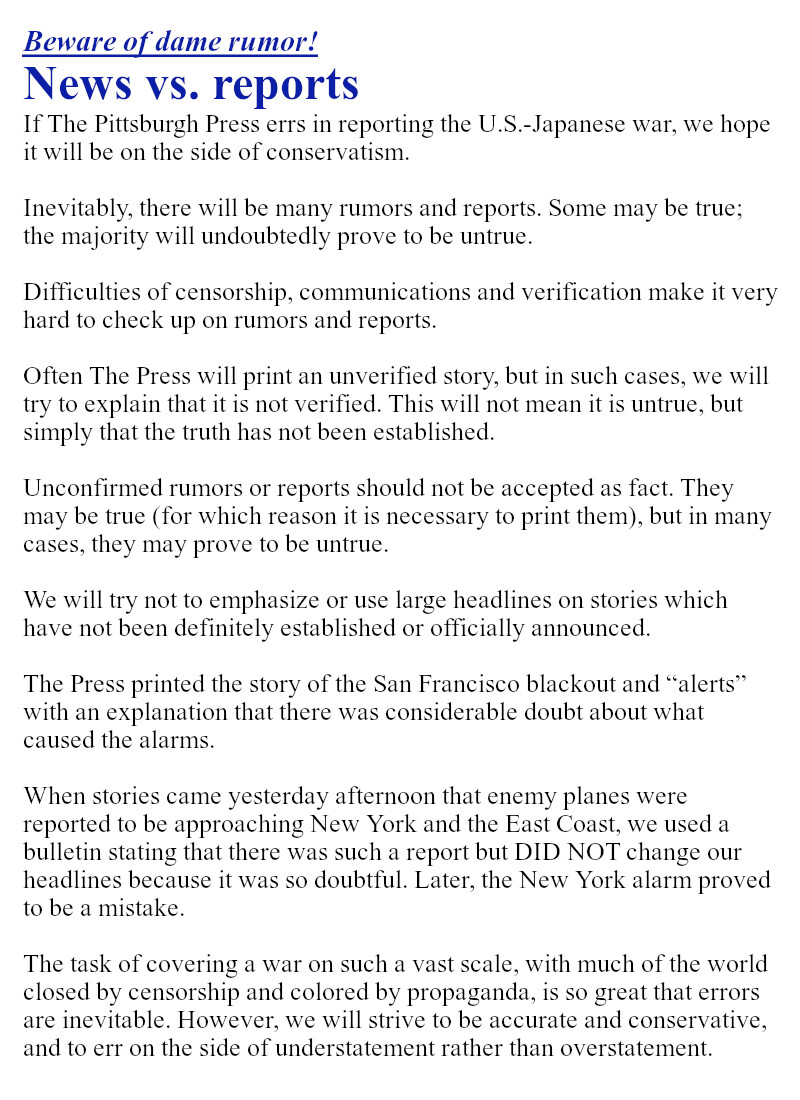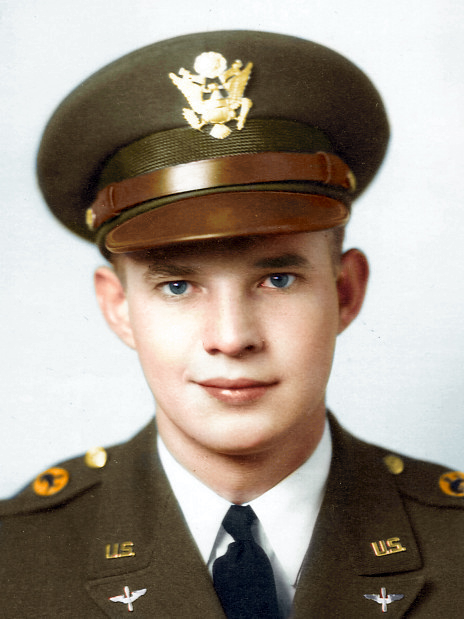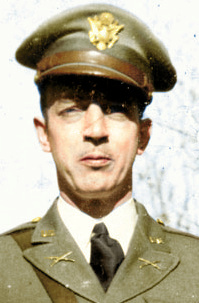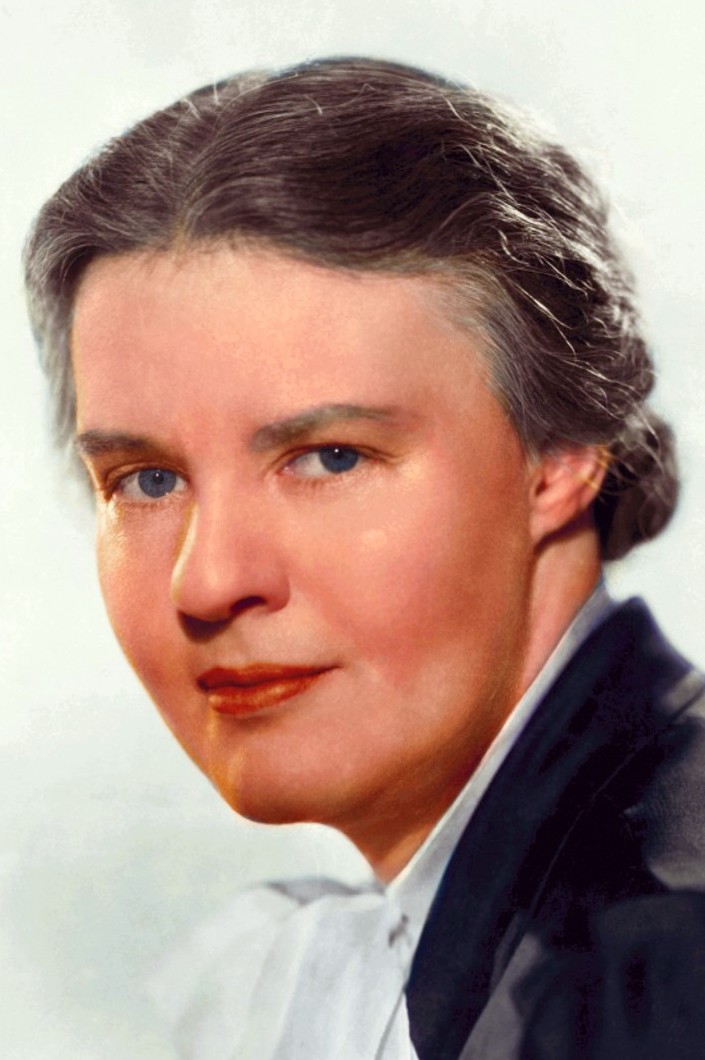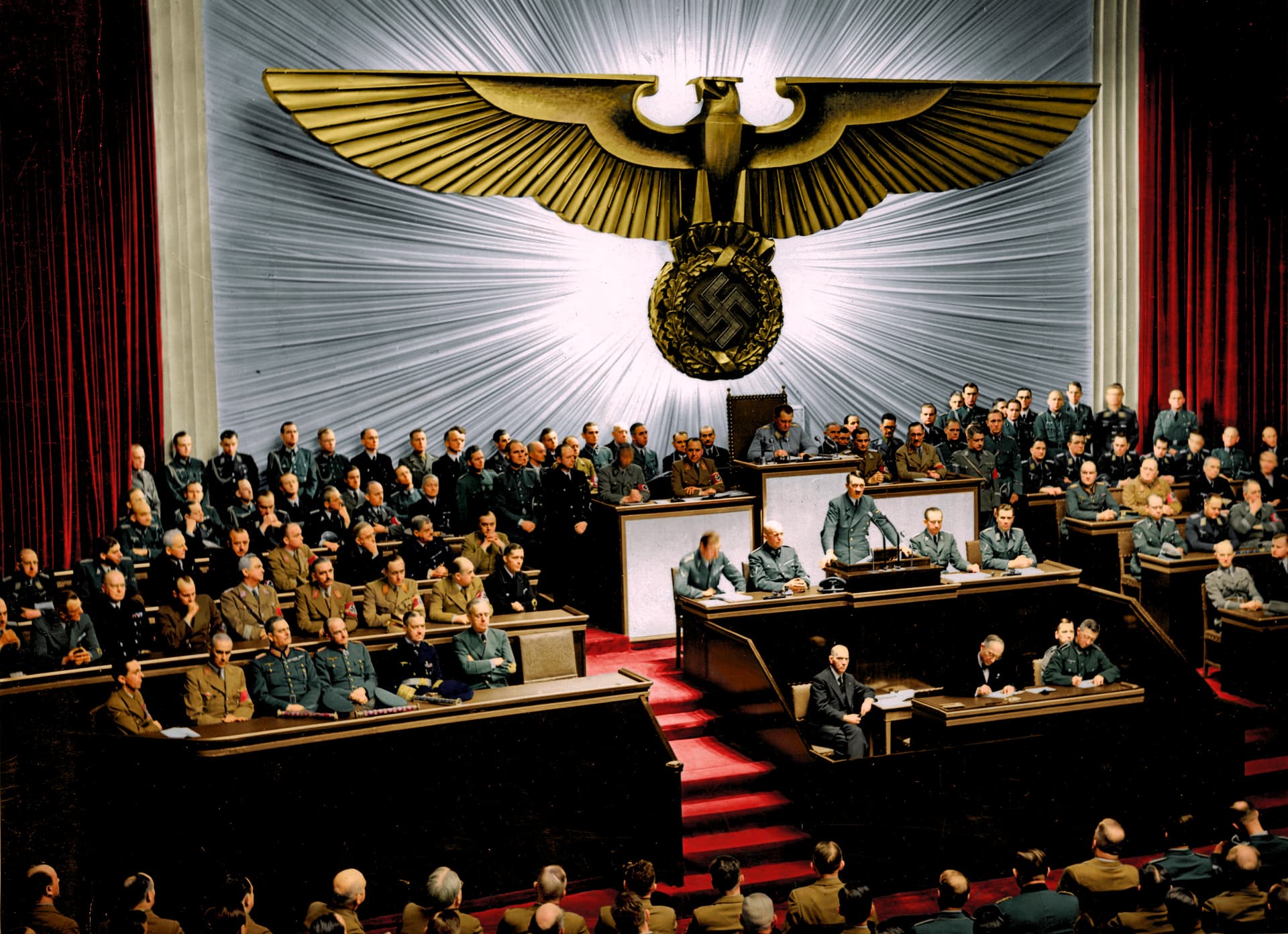Roosevelt gives pledge of total war against Axis
U.S. will win war and peace, President says, at the same time warning that both coasts are in immediate danger of raids
By Lyle C. Wilson, United Press staff writer
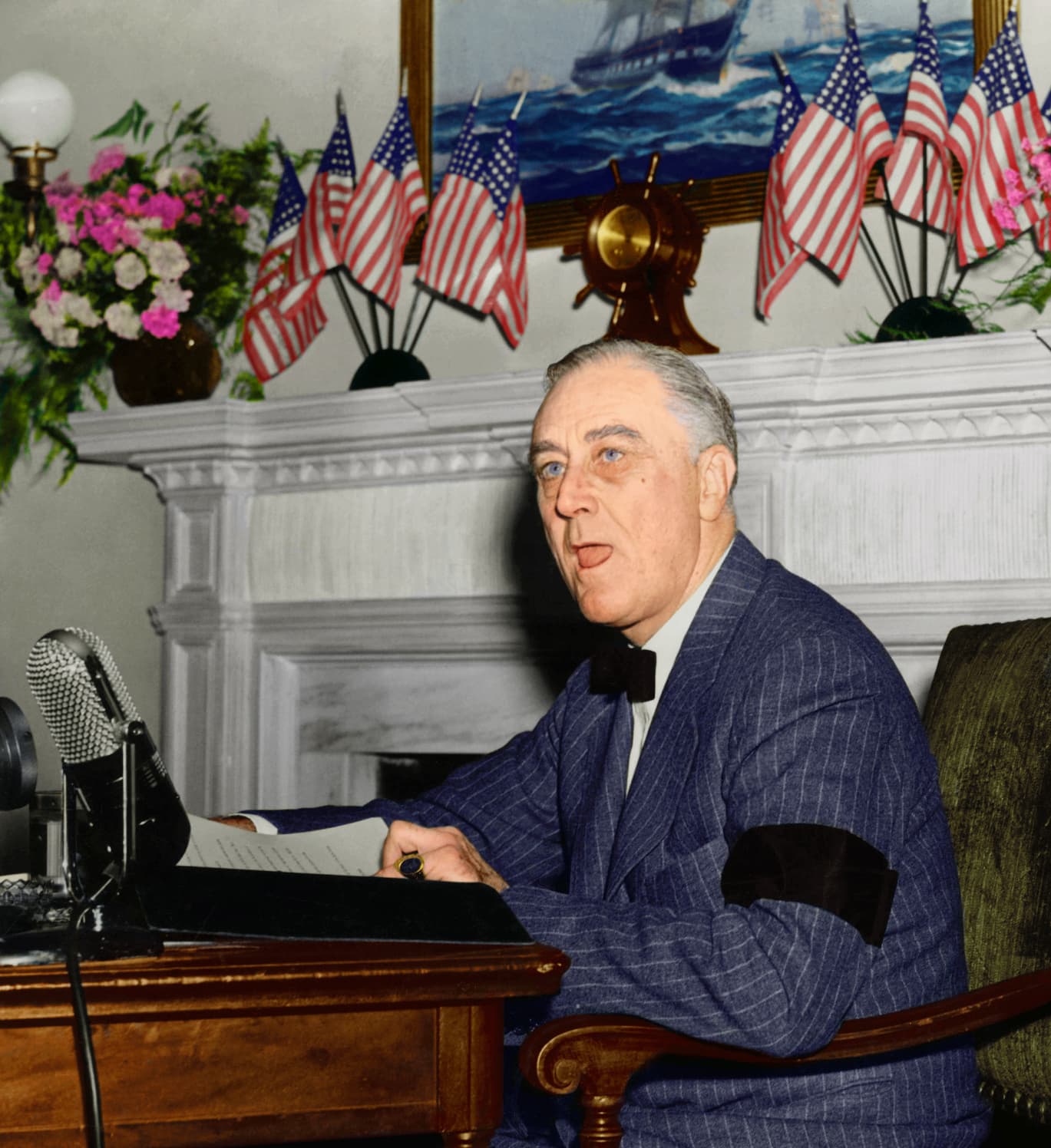
President Roosevelt at the microphone in the Oval Room at the White House
‘Reject all rumors’
WASHINGTON (UP) – The commander in chief to all Americans: “Most earnestly I urge my countrymen to reject all rumors. These ugly little hints of complete disaster fly thick and fast in wartime. They have to be examined and appraised… Many rumors and reports which we now hear originate with enemy sources… The purposes of such fantastic claims are, of course, to spread fear and confusion among us, and to goad us into revealing military information which our enemies are desperately anxious to obtain.”
WASHINGTON (UP) – President Roosevelt’s analysis of the pattern of world conflict placed the United States today in a state of informal war with Germany and Italy.
Although formally engaged in war against only Japan, the president promised to fight the Axis “with everything we’ve got.”
Foreign dispatches hinted that a German declaration of war against the United States was forthcoming. Mr. Roosevelt warned of the real and immediate danger of a sneak punch – like that which rocked Pearl Harbor – on both our coasts, Atlantic or Pacific.
Other advices here suggested that Adolf Hitler might prefer for the time being to avoid actual war with the United States.
But in a war report to the nation that made previous fireside chats seem of small consequence in comparison, Mr. Roosevelt last night blunted no words in saying that we are in a fight for our collective lives – and that we will win the war, and the peace to follow.
The president’s warning that “Germany and Italy… consider themselves at war with the United States at this moment” brought from congressmen the comment that it was a “realistic recognition” of the facts.
Speaker Sam Rayburn, D-Texas, sounded the tenor of general congressional comment with “of course, we all think that Germany and Italy are going to follow the Japanese as brothers in this Axis agreement.”
Mr. Rayburn has said that Congress would declare war on Germany and Italy as quickly as it did against Japan if those two countries decide to attack the United States.
Of what has happened in the Pacific, Mr. Roosevelt said: “So far, the news is all bad. Casualty lists will be large.”
Acknowledging a “serious setback in Hawaii” and that the country must be prepared to hear that Midway, Wake and Guam Islands have been captured, he declared there was no impregnable defense against blows without warning and urged the public, the press, and the radio to wait for the facts.
“Most earnestly,” the president continued, “I urge my fellow countrymen to reject all rumors. These ugly little hints of complete disaster fly thick and fast in wartime.”
Aimed at spreading fear
He said the enemy spread many a rumor to create fear and confusion among the public and to goad the government to denials and admissions of information eagerly sought in Axis capitals.
Mr. Roosevelt said he did not yet know the “exact damage” at Pearl Harbor but that “admittedly the damage is serious.” He dismissed as “fantastic” claims that Japan had gained naval control of the Pacific.
Mr. Roosevelt denounced Hitler, Mussolini, and the Japanese warlords. He left no doubt that the war – the all-out, total, world war – is on, with Great Britain and her Dominions, the Soviet Union, the United States and associated powers on one side, and the Axis on the other – all of the Axis.
‘Resourceful gangsters’
“Remember always that Germany and Italy, regardless of any formal declaration of war,” Mr. Roosevelt said, “consider themselves at war with the United States at this moment just as much as they consider themselves at war with Britain and Russia. And Germany puts all the other republics of America into the same category of enemies.
“Powerful and resourceful gangsters have banded together to make war upon the whole human race. Their challenge has now been flung at the United States.
“We must be set to face a long war. The attack on Pearl Harbor can be repeated at any one of many points in both oceans and along both our coastlines against all the rest of the hemisphere.
‘Not immune from attack’
“Our ocean-girt hemisphere is not immune from severe attack.
“Your government knows that for weeks Germany has been telling Japan that if Japan did not attack the United States, Japan would not share in dividing the spoils with Germany when peace came. She was promised by Germany that if she came in, she would receive the complete and perpetual control of the whole Pacific area – and that means not only the Far East, not only the islands in the Pacific, but also a stranglehold on the west coast of North, Central, and South America.
“We also know that Germany and Japan are conducting their military and naval operations in accordance with a joint plan. That plan considers all peoples and nations which are not helping the Axis powers as common enemies of each and every one of the Axis powers.
“That is their simple and obvious grand strategy.”
‘Final and complete victory’
So, Mr. Roosevelt said he had accepted the challenge and that we would accept no result except victory, final and complete. We are in the war, he explained, not for conquest or for vengeance, but for a world in which our children will be safe. He said we expected to eliminate the danger from Japan, but that Hitler and Mussolini must go too.
He compared the actions of Japan in Asia and of Hitler and Mussolini in Europe and Africa for ten years past and said: “It is all of one pattern.
“Without warning – without warning – without warning.”
10-year history cited
Again and again, Mr. Roosevelt repeated that phrase as he cited surprise attacks by the Axis powers on peaceful nations – Manchukuo, Ethiopia, Austria, Czechoslovakia, Poland, Norway, Denmark, the Netherlands, Belgium, Luxembourg, France, Greece, Yugoslavia, the Soviet Union and finally, last weekend, Malaya, Thailand, and the United States. His quick recapitulation covered 10 explosive years, 1931-41.
Mr. Roosevelt said of the Japanese attack in the Pacific: “We may acknowledge that our enemies have performed a brilliant feat of deception, perfectly timed and executed with great skill. It was a thoroughly dishonorable deed, but we must face the fact that modern warfare as conducted in the Nazi manner is a dirty business.
“We don’t like it – we didn’t want to get in it – but we are in it, and we’re going to fight it with everything we’ve got.
‘We’re in it all the way’
“We are now in this war. We are all in it – all the way. Every single man, woman, and child is a partner in the most tremendous undertaking of our American history. We must share together the bad news and the good news, the defeats and the victories – the changing fortunes of war.”
He promised to give the facts to the public as fast as they became available, provided first that a complete check be made on their accuracy and, second, that release of the information would not prove valuable to the enemy.
‘A trick of propaganda’
“Many rumors and reports which we now hear originate with enemy sources,” he said. “For instance, today the Japanese are claiming that they have gained naval supremacy in the Pacific. This is an old trick of propaganda which has been used innumerable times by the Nazis. The purposes of such fantastic claims are, of course, to spread fear and confusion among us, and to goad us into revealing military information which our enemies are desperately anxious to obtain.”
Explaining that we will continue to supply other armies, navies and air forces fighting the Axis, Mr. Roosevelt said he had adopted two broad production principles:
-
A seven-day workweek in war industry and in the production of essential raw materials.
-
Expansion of production capacity by building new plants, expanding old plants, and using many small plants.
Enough food ‘at present’
He promised that the road to victory in the war and the peace to follow was one of hard, grueling, day-and-night work. But he found comfort in confidence that the nation was united at last, that “the obstacles and difficulties, divisions and disputes, indifference and callousness are now all past – and, I am sure, forgotten.”
There is enough food “at present,” he assured the nation, to provide amply here and to leave much left over for export to less-favored partners in the anti-Axis drive.
No sacrifice would be felt or resented, Mr. Roosevelt was sure, by men privileged to serve in the Army, by citizens burdened with mounting taxes, or by those who must forego extra profits or curtail their manner of living. But he warned that there was a bitter shortage of metal and that half of the vital metals used for civilian consumption this year would have to be diverted to the war effort from now on.
Terrible lesson learned
But it was guns-and-butter for us in contrast to the guns-before-butter that Nazi Germany, Fascist Italy and militaristic Japan have had to endure.
In ten years of observing and patiently and peacefully opposing aggression, Mr. Roosevelt said he had learned a terrible lesson, the worst part of it, perhaps, in the past three days since war flamed in the Pacific. He promised that we shall not forget that there can be no security in a gangster-ruled world, that there is no impregnable defense against blows without warning, that our own hemisphere, our own coastal cities and towns are now in jeopardy and, finally, “that modern warfare as conducted in the Nazi manner is a dirty business.”
Congressional comment backs president’s speech
WASHINGTON (UP) – Speaker Sam Rayburn, D-Texas, said today that President Roosevelt’s statement last night that Germany and Italy consider themselves at war with the United States was “a very frank, lucid statement.”
“Of course, we all think that Germany and Italy are going to follow the Japanese as brothers in this Axis agreement,” Mr. Rayburn said. “The President in his address took the American people into his confidence and let them know that we have a big and hard job before us.”
Sen. Styles Bridges, R-New Hampshire, said the speech was a “clear analysis” of the situation, carrying a warning that the nation “must be prepared for any emergency in the Atlantic.” Mr. Bridges said he would not be surprised by a German declaration of war against the United States.
Senate Democratic leader Alben W. Barkley, D-Kentucky, said the speech was “a very frank and able presentation.” Chairman Tom Connally, D-Texas, of the Senate Foreign Relations Committee called the address “brave and vigorous, voicing the determination of the nation and all our people to prosecute the war with every ounce of our strength.”
Other comments:
“The President assured the country that we are going to not only win the war, but the peace.”
– Sen. Claude Pepper, D-Florida
“The President has spoken for the country. He must have had strong reasons for all of the statements he made.”
– Sen. Walter F. George, D-Georgia
“Mr. Roosevelt gave the nation every bit of information he would have been entitled to give.”
– Sen. Lister Hill, D-Alabama
“The President’s call for all-out effort for complete production from the vast American production machine is particularly deserving of a cordial, cooperative response.”
– House Republican Leader Joseph W. Martin, R-Massachusetts
“What I am interested in is whether we’re going to have a war resolution against them.”
– Rep. Hamilton Fish, R-New York, agreeing that Germany and Italy consider themselves at war with the United States
“There can be no shadow of a doubt as to what the nation’s response will be to the speech.”
– Chairman Sol Bloom, D-New York, of the House Foreign Relations Committee
French impressed by U.S. war unity
By Paul Ghali
VICHY – President Roosevelt’s broadcast to the American people Tuesday night was only heard here at 5 a.m. today (10 p.m. Tuesday ET), which means that few reactions are as yet available in Vichy. The full text of his speech is known only to a few officials whose lips are diplomatically sealed.
The president has, however, impressed his few French listeners with the fact that the war against the Axis is an “American national war” and that he had complete national unity behind him.
Vichy circles have undoubtedly been struck by the Japanese successes in the first few days of the war which give definite proof that the attacks were well prepared. This feeling was emphasized by the reports that the British battleships HMS Prince of Wales and HMS Repulse had been sunk.
President Roosevelt’s decision to round up German and Italian nationals in the United States will, it is believed here, have quick repercussions among the Americans still in occupied France. According to a U.S. embassy source, these Americans number approximately 700. Whether the Germans will apply an eye-for-an-eye policy, or whether only the most prominent Americans will be interned remains to be seen.
What will happen when Germany sides with Japan is in the laps of the gods. Japanese correspondents in Vichy are insistent that this eventuality may crop up in the next 24 hours and that a common German-Italian declaration is in the air, although nobody knows whether it will be a formal declaration of war or only declarations of sympathy for Japan.
Rome expects Axis to act in unity
NEW YORK (UP) – The Rome radio, commenting on President Roosevelt’s speech last night, said today that it was “of such a manner that the functioning of the Three-Power Pact may be expected,” according to NBC’s listening post.
The Three-Power Pact is the Berlin-Rome military alliance under which Germany and Italy are pledged to go to the aid of Japan in the event she was “attacked” in the Pacific. The Rome broadcast was a further forecast of German and Italian declarations of war against the United States.
Britain’s Far Eastern Fleet obliterated, Tokyo claims
U.S. sub and transport sunk, Japs say, admitting loss of 38 airplanes
By the United Press
Japanese Imperial Headquarters, announcing that Japanese airplanes had sunk the British battleship HMS Prince of Wales and battlecruiser HMS Repulse, asserted today that the British Far Eastern Fleet had been obliterated.
The British Admiralty admitted the sinkings of the Prince of Wales and the Repulse.
The Mikado, in a special message of felicitation to Adm. Isoroku Yamamoto, commander in chief of the Combined Fleet, congratulated him on the outstanding results of the “great naval war in the Pacific against Great Britain and the United States.”
Claim U.S. sub sunk
It was asserted that a U.S. submarine had been sunk east of the Philippines.
Japanese Imperial Headquarters asserted that in a dawn attack today, Japanese troops had landed on Luzon, principal island of the Philippines, and that operations were proceeding rapidly. Manila, officially admitting Jap landings in northern Luzon, said a landing attempt on the west coast was repulsed.
Tokyo quoted Lt. Gen. Douglas MacArthur, U.S. commander-in-chief in the Far East, as admitting in a broadcast from Manila that the Japanese had succeeded in effecting landings at certain points north of Manila despite resistance of the Philippine forces.
Report U.S. transport sunk
An official German news agency’s Shanghai dispatch said Japanese planes attacked Manila at 12:45 p.m. today (11:45 p.m. Tuesday ET) and dropped bombs on harbor works near Santiago, where ships were gathered in the harbor.
Tokyo’s high command said Japanese planes heavily attacked Nichols Field at Manila, destroying hangars, barracks and runways, and that submarines had sunk a 15,000-ton American transport in Manila Bay. Southwards of Hong Kong, it was added, a British armed merchantman was captured.
The Tokyo Foreign Office said Switzerland had agreed to represent American interests in Japan.
Japs admit 38 planes lost
Imperial Headquarters said the Japanese Navy had lost 38 planes since the outbreak of the war and admitted loss of two transports and damage to two others.
The Japanese Army admitted loss of 13 planes.
Asserting that no enemy planes had yet appeared over Japan, Tokyo warned that bombings must be expected, the BBC reported in a broadcast heard by CBS.
Tokyo said the announcement of the sinking of the Prince of Wales and the Repulse caused wild excitement all over Japan as it was flashed over all radio networks.
Tokyo hails news
At Tokyo street intersections, pedestrians scrambled for extra editions of newspapers, it was said, and jammed in front of newspapers to read electric signboards announcing the news.
Tokyo officials denied reports that a Japanese aircraft carrier had been sunk off Hawaii and they suggested that perhaps the aircraft carrier USS Enterprise (19,900 tons) had been seen sinking after having suffered hits by Japanese bombs. No formal claim to destruction of the Enterprise was made and Imperial Headquarters did not indicate where Japanese transports had been lost and damaged.
Japanese Army headquarters in Bangkok were reported to have assured nationals of India, Malaya, Burma, China and other Asiatic countries that they had nothing to fear from Japanese troops in Thailand unless they attempted to leave the country, in which case they would be treated as enemies.
It was asserted that the American submarine was sunk Monday off northern New Guinea, south of the Philippines, after it had left Manila apparently on its way to Japanese waters.
Land in Philippines, Japs say
One dispatch regarding the American submarine sinking claim said it was destroyed off the Japanese-mandated Palau Islands, in the Carolina group east of the Philippines and north of New Guinea.
Japanese Imperial Headquarters, announcing the Philippines invasion attempt, said that after a dawn landing, “rapid operations continue.”
Japan also said that its troops had landed in Guam, one of the three U.S. Pacific outpost islands which it had attacked.
Radio Rome reported that two American merchantmen, carrying material to the Far East, had been sunk after attempting to turn back to the U.S. West Coast.
Roosevelt, Churchill to meet?
Radio Rome also said it had “learned” that President Roosevelt and Prime Minister Churchill planned to meet soon to discuss the present situation. Another Rome dispatch reported that the president had sought the meeting.
Berlin’s radio reported that six of eight U.S. battleships at Hawaii had been put out of action – the Oklahoma and West Virginia sunk and four others damaged.
Claims 25 U.S. planes
Radio Tokyo, announcing the Japanese attempt to invade the Philippines, quoted a joint communique by the army and navy sections of Imperial Headquarters, thus disclosing the combined army and navy operation.
Tokyo also asserted that 25 American planes had been shot down and 75 destroyed aground in an attack on the Army’s largest Philippine airfield, apparently Clark Field.
Japanese reports indicated that of the three American mid-Pacific islands, both Guam and Wake had now been occupied by Japanese troops and said that Midway, the third, was under heavy fire by warships.
Captured Marines arrive
The Japanese denied reports that Tokyo and Formosa, the Japanese island off the China coast, had been bombed, and said not a single plane had been seen over Jap territory.
It was added that precautionary “light control” was being effected in key Japanese cities, but no complete blackouts had been ordered.
Berlin reported that American Marines, captured by the Japanese in northern China, had arrived in Tokyo as prisoners.
Radio Rome quoted Tokyo as appealing by radio to South American nations to remain neutral, that “they have no interest whatsoever in the Far Eastern conflict.”
Claim Hong Kong isolated
Japanese broadcasts continued to assert that Japanese troops were marching southward toward Singapore from Thailand and said that Hong Kong was now completely isolated.
Shanghai reporters said Japanese planes had started a heavy attack against Chinese troop concentrations in southern China.
Japanese dispatches reported that a new agreement had been signed between Japan and Vichy authorities of French Indo-China, providing for detailed “joint defense” of Indo-China.
Army demands end of Morgantown strike
WASHINGTON (UP) – Army officers today told leaders of a jurisdictional labor dispute involving welders that all work must be resumed at once on the War Department’s $40 million Morgantown, West Virginia, ordnance plant.
The Army Labor Relations Office made the statement in arranging a conference for this afternoon between representatives of the United Brotherhood of Welders, Cutters and Helpers (I) and the United Association of Plumbers and Steamfitters (AFL).
Heber Brown, attorney for the welders, said 120 members of the union are being prevented by AFL pickets from returning to their jobs at the Morgantown plant. The welders were formerly members of AFL unions.
“Army officers told us that they intend to see that the Morgantown plant gets built as rapidly as possible, no matter how,” Mr. Brown said. “They arranged for us to confer with George Masterson, president of the Steamfitters.”
Lloyd Payne, secretary of the Welders, this week called on locals claiming to represent 125,000 welders to be prepared for a “sudden and determined strike” throughout the country if the Morgantown dispute is not adjusted.
Mr. Brown said the “situation on the West Coast,” where the dispute originated, “looks pretty good.” He said the strike orders will probably be canceled if an agreement can be reached at the Morgantown plant.
‘Jukebox’ curb ordered
WASHINGTON – Priorities Director Donald M. Nelson today ordered sharp cuts in production of “jukebox,” and weighing, amusement and gaming machines, to conserve defense materials.
Eichelberger: War only ‘choice’
“The United States has no choice but to wage war with full intensity upon both Germany and Japan for the attainment of final victory,” Clark Eichelberger, national chairman of the Committee to Defend America, said in a statement issued today through the committee’s local office.
“In the treacherous attack of Japan upon the United States, Germany is the chief culprit,” Mr. Eichelberger asserted. “There would be no major Japanese problem if it were not for Hitler.
“The surprise attack, while negotiations were in progress, is part of the strategy that Hitler has always followed.”
Only through defeat of both Germany and Japan “will it be possible to organize the world on the basis of law and order,” the statement declared.
Wheeler confident U.S. will win war
CHICAGO (UP) – Sen. Burton K. Wheeler, D-Montana, former isolationist leader, expressed confidence today that the United States would eventually win the war, but said “it won’t be any pink tea affair because we’ve given so much of our stuff away.”
“I don’t think we can lick Japan in 30 or 60 days,” Sen. Wheeler said in an interview, “first because it will be difficult to get at the Japanese and secondly because of the war materials we’ve given away.”
Sen. Wheeler reiterated his previous statement that he was opposed to going to war, but “that we must see it through now that we are in it.”
House group ready to start probe of Navy
Committee will ask if ‘someone was asleep’ during Jap assault
WASHINGTON (UP) – The House Naval Affairs Committee prepared to start an inquiry today to determine whether “somebody was asleep” during the Japanese assault on Hawaii Sunday.
Secretary of the Navy Frank Knox and Chief of Naval Operations Adm. Harold R. Stark were asked to testify at a secret session today, but Knox is away and Adm. Stark said he would have to delay his own testimony for a day or so.
The committee, however, will hear Dr. Ross T. McIntire, Navy surgeon general. He will be questioned regarding charges that some ranking naval officers are physically unfit for the rigors of their duties.
Truth demanded
Congress yesterday reverberated with demands that the people be told the truth about the situation in the Pacific.
The most insistent demand came from Sen. Charles H. Tobey, R-New Hampshire, who said a colleague told him on the Senate floor that “a large part of the Pacific Fleet has been wiped out.”
His views were echoed by Sen. Walter F. George, D-Georgia, who called for “full and complete” information insofar as naval operations permit.
‘Entitled to know’
“That is the only way for any free people to conduct a war,” he said. “The people are entitled to know what is going on.”
White House Secretary Stephen T. Early said he could not reply to a question whether the Japanese bombing of Pearl Harbor – America’s most formidable naval fortress – constituted “the worst naval disaster in our history.”
All he could do, Mr. Early said, was reiterate his statement of Monday: “Our losses were heavy and subsequent reports show the losses to be heavier than first reported.”
President Roosevelt made a similar statement in his address to the nation last night.
Senators seek way to present facts on war
Democrats and Republicans agree that candid picture should be presented, no matter how serious; congressional liaison group proposed
WASHINGTON (UP) – Senators were encouraged today by President Roosevelt’s pledge to “give the facts” about war operations, but had various suggestions on methods of keeping the public better informed.
Both Democratic and Republican senators urged that a candid picture of the war scene be presented, no matter how serious.
Sen. Arthur Vandenberg, R-Michigan, asked appointment of a congressional liaison group to act as a “connecting link” between President Roosevelt and Congress and to supply factual information on military and naval operations.
Sen. Robert A. Taft, R-Ohio, suggested that system of daily communiques be instituted by the War and Navy Departments.
Mr. Vandenberg believed that appointment of a liaison group would make unlikely a recurrence of the wave of rumors which swept Congress yesterday. Mr. Vandenberg, describing the congressional mood as “seething,” said 98 percent of the membership was “damned near exploding with wrath and indignation” at the Japanese successes.
He suggested that the liaison committee might, in some respects, parallel the position of British Cabinet officers who give authoritative answers to questions raised in the Houses of Commons and Lords.
Mr. Taft’s communique plan of news dissemination was aimed to remove that function from complete Executive Office control.
Knox ‘out of town’
“A regular method of issuing factual, daily communiques on the progress of the war should be adopted, coming from the Army and Navy,” he said. “The Executive Office shouldn’t be the means of giving the people either good or bad news.”
Demands for information, either confirming or denying the many rumors that swept the capital, crystallized today in a House Naval Affairs Committee inquiry into the naval situation in the Pacific. The committee originally planned to question Secretary of the Navy Frank Knox and Adm. Harold R. Stark. Mr. Knox, however, was reported “out of town,” while Adm. Stark’s appearance was described as “out of the question” for the present.
Committee to study question
Questioning of Navy Department officials may center around a charge brought by Rep. Beverly Vincent, D-Kentucky, that some high officers at Oahu and Honolulu were physically unfit for active duty.
The House Military Affairs Committee today will consider to what extent, in its own opinion, it should receive information on operations of the Armed Forces.
Chairman Robert R. Reynolds, D-North Carolina, of the Senate Military Affairs Committee, said Mr. Vandenberg’s proposal was worthy of close consideration. All information not detrimental to the success of combat operations should be made public “to array the wild rumors,” Mr. Reynolds said.
Sen. Styles Bridges, R-New Hampshire, asked that the administration “be frank with the American people even as to losses incurred, so long as the information does not reveal weaknesses to the enemy which could be taken advantage of.”
Sen. Scott Lucas, D-Illinois, urged that some proposal of the nature suggested by Mr. Vandenberg be given consideration.
